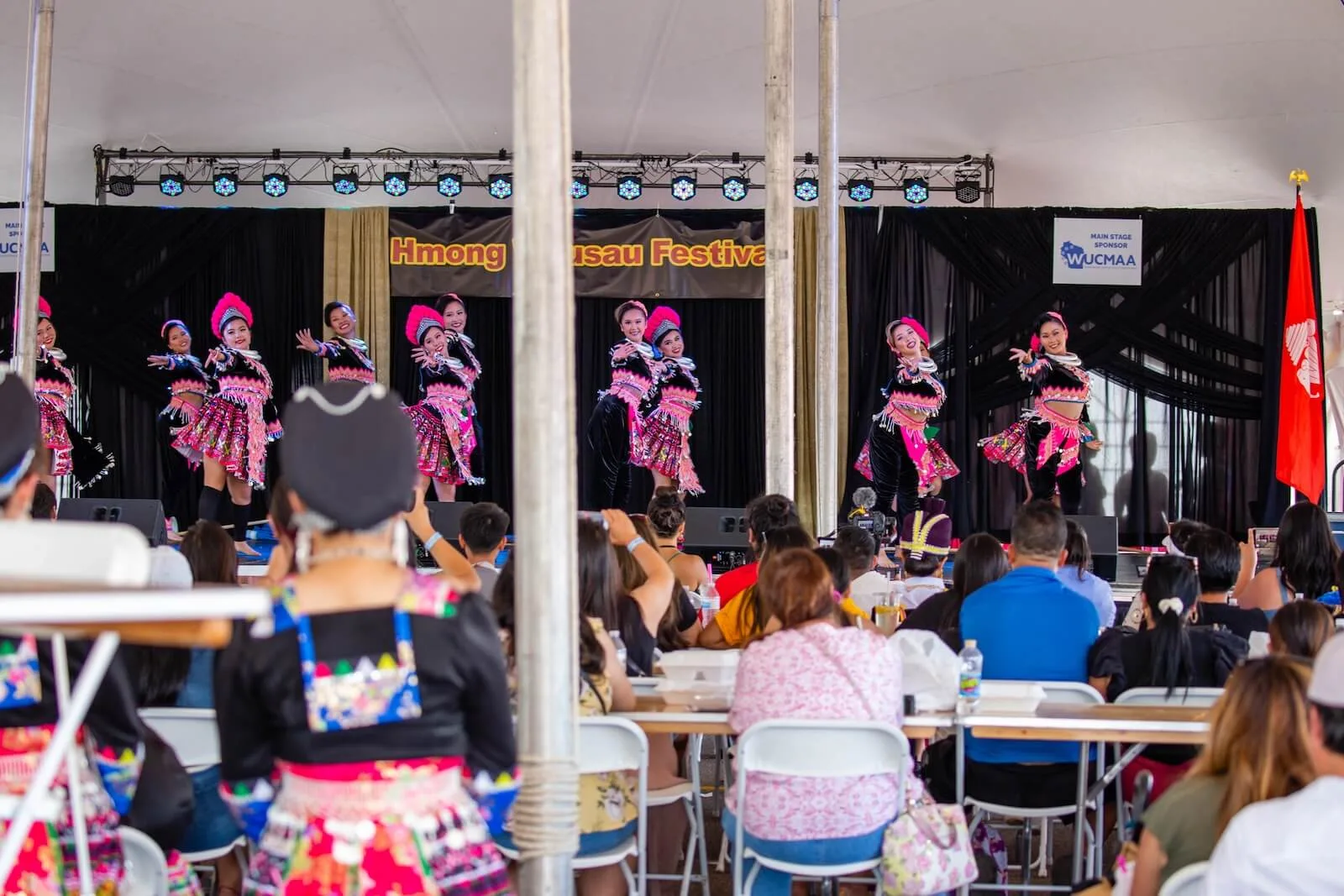
The 5th Annual Hmong Wausau Festival on July 20, 2022. (Michael Tatman via Shutterstock)
Column by Reps. Shankland, Hong, Snyder and Sens. Tomczyk and James
Editor’s Note – The following column was submitted by five Wisconsin legislators: Rep. Francesca Hong (D-Madison), Rep. Katrina Shankland (D-Stevens Point), Rep. Patrick Snyder (R-Schofield), Sen. Cory Tomczyk (R-Mosinee), and Sen. Jesse James (R-Altoona)
On May 17, the Wisconsin State Assembly passed a historic joint resolution recognizing May as Asian American, Native Hawaiian, and Pacific Islander Heritage Month. This bipartisan commemoration of the many AANHPI communities that call Wisconsin home underscores the importance of celebrating their rich cultural heritages, their innumerable contributions, and their resilience in the face of adversity.
Wisconsin has the third largest Hmong population in the United States and is home to over 200,000 Asian Americans, Native Hawaiians, and Pacific Islanders in total. For decades, their stories have often gone untold — their voices undervalued and their experiences pushed to the wayside. As policymakers, we must rededicate ourselves this month and every month to uplifting this community’s impact on Wisconsin by filling in the gaps that exist in our state’s storytelling.
That is why we are proud to announce our bipartisan legislation to update Wisconsin law so that our state’s educational goals in K-12 public schools include instruction regarding Hmong Americans and Asian Americans. We are pleased that after years of organizing and building support for this legislation, the Assembly Committee on Education held a historic public hearing on the bill on May 25. The public hearing highlighted the unique place that Hmong and Asian Americans hold in our history and the role they will play in our collective future. Legislators heard from youth and adults from all over Wisconsin as they shared powerful personal stories regarding how this legislation will create a positive impact on their feelings of belonging as well as enrich and enhance the cultural awareness of educators, students, and their families.
When signed into law, Assembly Bill 232 and Senate Bill 240 will not only increase awareness of Hmong and Asian American history in our public schools, but will immensely benefit the lives of Wisconsin students by exposing them to an increased diversity of ideas and cultures.

Hmong and Asian American individuals will finally receive the attention, commemoration, and respect they deserve for the vital role they play in Wisconsin, and we will all be better for it.
Thank you to the AANHPI students, organizers, and stakeholders that have made these important milestones happen. We celebrate these individuals in honor of Hmong Heritage Month and Asian American, Native Hawaiian, Pacific Islander Heritage Month, and look forward to the passage of this bipartisan legislation.
Politics

Biden administration bans noncompete clauses for workers
The Federal Trade Commission (FTC) voted on Tuesday to ban noncompete agreements—those pesky clauses that employers often force their workers to...

Opinion: Trump, GOP fail January 6 truth test
In this op-ed, Milwaukee resident Terry Hansen reflects on the events that took place on January 6, the response from Trump and other GOP members,...
Local News

Readers Poll: Top Bowling Alleys in Wisconsin
Looking for the best bowling in Wisconsin? Look no further! Our readers have spoken in our recent poll, and we have the inside scoop on the top...

8 Wisconsin restaurants Top Chef judges are raving about
Top Chef’s 21st season is all about Wisconsin, and on-screen, it’s already apparent that the judges feel right at home here. But, while filming in...




